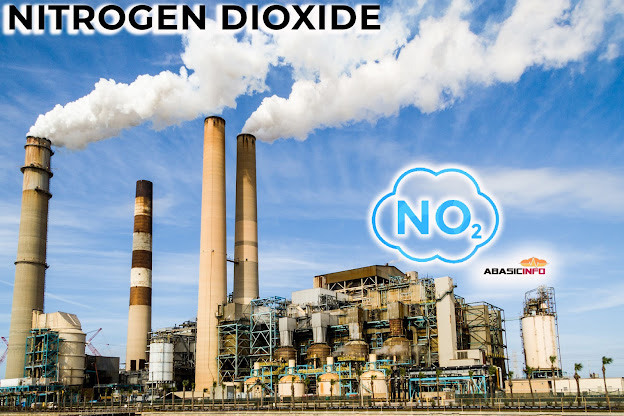Nitrogen dioxide (NO2) is a noxious gas that can have
adverse effects on human health and the environment. It is primarily emitted
from combustion processes in vehicles, power plants, industrial facilities, and
residential heating systems. Exposure to elevated levels of NO2 can lead to a
range of health issues, making it crucial to understand its effects and
implement strategies to minimize exposure.
Health Effects of NO2
NO2 is a significant contributor to air pollution and is
part of a group of pollutants known as nitrogen oxides (NOx). The adverse
health effects of NO2 stem from its ability to irritate the respiratory system
and exacerbate existing respiratory conditions. Short-term exposure to elevated
NO2 levels can result in various symptoms, including:
Respiratory Irritation: NO2 can cause irritation of the
respiratory tract, leading to symptoms such as coughing, wheezing, and
shortness of breath. These effects are particularly pronounced in individuals
with asthma, bronchitis, or other respiratory conditions.
Aggravation of Respiratory Conditions: NO2 exposure can
worsen existing respiratory conditions like asthma. It can trigger asthma
attacks, increase the frequency of symptoms, and reduce lung function, making
it difficult for individuals to breathe normally.
Increased Susceptibility to Infections: Prolonged
exposure to NO2 may weaken the immune system's defenses against respiratory
infections, making individuals more susceptible to illnesses like pneumonia and
bronchitis.
Long-Term Health Effects: Chronic exposure to elevated
NO2 levels has been associated with the development of respiratory diseases,
such as chronic obstructive pulmonary disease (COPD), and an increased risk of
cardiovascular diseases.
Vulnerable Populations: Children, the elderly, and
individuals with preexisting respiratory or cardiovascular conditions are more
susceptible to the health effects of NO2 due to their reduced ability to cope
with its impact.
Strategies to Avoid NO2 Exposure
Given the potential health risks associated with NO2
exposure, it is essential to adopt strategies to minimize personal exposure.
Here are some effective mitigation strategies:
Reduce Vehicle Emissions:
Choose public transportation, carpooling, biking, or walking
whenever possible to reduce vehicle emissions.
Opt for electric or hybrid vehicles that produce fewer
emissions compared to traditional internal combustion engines.
Maintain your vehicle regularly, ensuring that the engine is
running efficiently, and emissions are minimized.
Promote Clean Energy Sources:
Support policies and initiatives that promote the use of
clean and renewable energy sources for power generation.
Transition from fossil fuel-based heating systems to
electric or cleaner alternatives.
Improve Indoor Air Quality:
Use air purifiers with HEPA filters to reduce indoor air
pollutants, including NO2, that may infiltrate from the outdoors.
Ensure proper ventilation in your home to reduce the
concentration of indoor pollutants.
Monitor Outdoor Air Quality:
Stay informed about air quality levels in your area through
local environmental agencies or air quality apps.
Limit outdoor activity on days when NO2 levels are elevated,
especially if you belong to a sensitive group.
Urban Planning and Green Spaces:
Support urban planning that prioritizes green spaces,
pedestrian-friendly infrastructure, and non-motorized transportation modes.
Trees and vegetation can act as natural filters, helping to
absorb pollutants like NO2 and improve air quality.
Regulations and Policies:
Advocate for and comply with regulations aimed at reducing
NO2 emissions from industrial sources, vehicles, and power plants.
Support policies that encourage the adoption of cleaner
technologies and the reduction of emissions.
Personal Protective Measures:
If you belong to a vulnerable population, consult your
healthcare provider for advice on how to reduce exposure to NO2 and manage your
respiratory conditions effectively.
In conclusion, nitrogen dioxide (NO2) is a harmful air
pollutant with the potential to cause significant health effects, particularly
on the respiratory system. It is imperative that individuals, communities, and
governments work together to reduce NO2 emissions and limit exposure. By
adopting a combination of strategies, such as promoting cleaner energy sources,
reducing vehicle emissions, and improving indoor air quality, we can mitigate
the adverse effects of NO2 and ensure a healthier and safer environment for
all.

